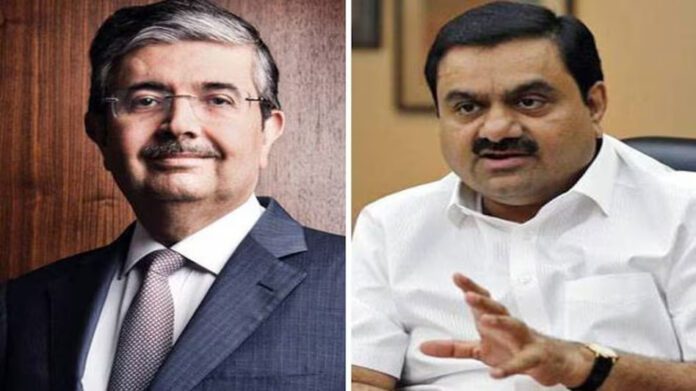India’s regulatory landscape is seen to be heating up due to the involvement of Kotak in Hindenburg saga. Narratives are often intertwined, creating complex webs that are difficult to untangle.
This story begins with Uday Kotak, a name synonymous with banking and finance in India. As the founder of Kotak Mahindra Bank, Uday Kotak built a financial empire that has become one of the largest and most respected institutions in India. However, even the most illustrious figures can find themselves embroiled in controversy, as the recent developments involving Kotak Mahindra Bank, Hindenburg Research, and the Adani Group illustrate.
The Offshore Fund Structure
At the heart of the controversy is an offshore fund structure allegedly created and overseen by Kotak Mahindra Bank and the brokerage firms founded by Uday Kotak. This structure was purportedly used by an investor partner of Hindenburg Research, a US-based short-seller, to bet against Adani Group stocks. Hindenburg Research is no stranger to controversy, having made headlines with its explosive reports on various companies, alleging fraud and financial misconduct.
The offshore fund structure, as alleged by Hindenburg Research, provided a mechanism for betting against Adani Group stocks without direct exposure in India. This intricate setup involved the K-India Opportunities Fund, which Hindenburg claims was effectively a disguise for the involvement of Kotak Mahindra Bank.
According to Hindenburg, the Securities and Exchange Board of India (SEBI) issued a show-cause notice concerning their short bet against Adani Group, yet conspicuously omitted any mention of Kotak Mahindra Bank.
The Show-Cause Notice
On June 27, SEBI sent a 46-page show-cause notice to Hindenburg Research. The notice, characterized by Hindenburg as “attempted intimidation,” aimed to scrutinize the short-seller’s activities and jurisdiction over their operations. Hindenburg’s blog post responding to this notice raised several pointed questions about SEBI’s oversight and alleged bias.
You can read the show cause notice here
“While SEBI seemingly tied itself in knots to claim jurisdiction over us, its notice conspicuously failed to name the party that has an actual tie to India: Kotak Bank,” Hindenburg stated. The short-seller highlighted the omission of Uday Kotak and his bank from the notice, suggesting that SEBI might be protecting another powerful Indian businessman from scrutiny. Hindenburg’s assertion was that the offshore fund structure, created and managed by Kotak Mahindra Bank, was pivotal to their short position against Adani.
The Adani Group Allegations
Hindenburg Research had previously published a report alleging that the Adani Group was engaged in a “brazen stock manipulation and accounting fraud scheme over the course of decades.” This report triggered a massive $150 billion rout in Adani group stocks, sending shockwaves through the financial markets. The allegations against Adani were severe, accusing the conglomerate of inflating stock prices and engaging in complex fraud mechanisms to deceive investors.
The fallout from Hindenburg’s report was significant, with the Adani Group vehemently denying the allegations and vowing to pursue legal action. The controversy attracted global attention, highlighting the high-stakes nature of financial markets and the potential for massive financial repercussions from investigative reports.
Adani Ports Excluded from Norway’s $ 1.7 Trillion Fund House Over the Ties with Myanmar War
The Role of Uday Kotak
Uday Kotak’s involvement added a new layer of complexity to the saga. As the founder of one of India’s largest banks and a prominent figure in the financial sector, Uday’s name carried significant weight. Moreover, Uday Kotak had led SEBI’s 2017 Committee on Corporate Governance, further entrenching his influence within India’s financial regulatory framework.
Hindenburg questioned why SEBI, while exerting its authority over the short-seller, chose not to mention Uday Kotak or any other Kotak board member in its notice. This omission, according to Hindenburg, suggested a protective stance towards Kotak, shielding him from scrutiny despite his alleged role in creating the offshore fund structure used to short Adani stocks.
The Broader Implications
The controversy surrounding Kotak Mahindra Bank, Hindenburg Research, and the Adani Group raises broader questions about financial regulation, transparency, and the influence of powerful individuals and institutions. It underscores the challenges regulators face in maintaining impartiality and the potential for conflicts of interest when prominent figures are involved.
For SEBI, the task of regulating India’s vast and complex financial markets is daunting. Balancing the need for robust oversight with the risk of appearing biased or selective in enforcement actions is a delicate endeavor. The omission of Uday Kotak’s name in the show-cause notice, whether intentional or not, has only fueled speculation about regulatory favoritism and the influence of powerful business interests.
The Continuing Adani-Hindenburg Saga
As the story unfolds, it remains to be seen how the various players will navigate the fallout. Hindenburg Research continues to stand by its allegations, undeterred by SEBI’s show-cause notice. The Adani Group, on the other hand, is working to rebuild investor confidence and counter the claims made against it.
Adani Group Faces Share Declines Amid US Bribery Investigation Probe
For Uday Kotak and Kotak Mahindra Bank, the scrutiny may prompt a reevaluation of their practices and a push for greater transparency. The allegations of creating and overseeing an offshore fund structure for short-selling activities highlight the need for clear and ethical guidelines in financial operations.
In the world of finance, where fortunes can be made or lost in an instant, the interplay of power, influence, and regulation remains a constant theme. The Kotak-Hindenburg-Adani saga serves as a stark reminder of the complexities and challenges inherent in the global financial system. As the dust settles, the hope is that greater transparency and accountability will emerge, strengthening the integrity of the markets and protecting the interests of investors worldwide.


